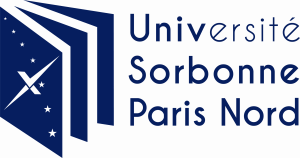CONFERENCE
Chromatic Homotopy, K-Theory and Functors
Homotopie chromatique, K-théorie et foncteurs
23 – 27 January, 2023
Scientific Committee
Comité scientifique
Gregory Arone (Stockholm University)
Paul Goerss (Northwestern University)
Birgit Richter (University of Hamburg)
Nathalie Wahl (University of Copenhagen)
Organizing Committee
Comité d’organisation
Christian Ausoni (Université Paris 13)
Kathryn Hess Bellwald (EPFL)
Geoffrey Powell (CNRS – Université d’Angers)
Antoine Touzé (Université de Lille)
Christine Vespa (Aix-Marseille Université)
This conference will focus upon three very active fields in algebraic topology and their interactions: chromatic homotopy theory, higher algebraic K-theory, and the development of powerful functorial methods.
Chromatic Homotopy Theory is an important framework which allows the dévissage of the exceedingly complicated stable homotopy category, based upon the geometry of the stack of one-dimensional formal groups, and revealing profound connections with geometry and arithmetic, for example modular forms.
Higher Algebraic K-theory is a fundamental invariant both in arithmetic and geometric topology, taking value in stable homotopy. It remains extremely difficult to compute, but there are important guiding principles involving localizations in chromatic homotopy and Galois descent in the terms of equivariant homotopy theory.
Functorial methods are extremely powerful in modern algebraic topology, a prominent example being Goodwillie calculus, now an essential tool in both homotopy theory and algebra, that has led to computations in algebraic K-theory via topological cyclic homology. The theory also provides powerful tools for the study of stability of homology for families of groups and for performing explicit computations of the cohomology of reductive group schemes.
Recent progress builds upon the far-reaching developments of Higher Algebra and the power of ∞-categories. Interactions with other fields, including (derived) algebraic geometry, number theory, motivic homotopy theory, mathematical physics and category theory lend vitality to the field.
The conference will be the closing event of the ANR project1 ChroK, Chromatic homotopy and K-theory. A major goal is to bring together a wide range of researchers in the above fields, from advanced PhD students to leading experts, to share recent advances in research, discuss the challenges ahead, and to develop collaborations and shape long-term projects.
Cette conférence porte sur trois domaines très actifs de la topologie algébrique et leurs interactions : la théorie de l’homotopie chromatique, la K-théorie algébrique supérieure et le développement de puissantes méthodes fonctorielles.
L’homotopie chromatique est une théorie importante permettant le dévissage de la catégorie homotopique stable, excessivement compliquée, et basée sur la géométrie du champ des groupes formels de dimension un. Elle dévoile des connections profondes avec la géométrie et l’arithmétique, comme par exemple les formes modulaires.
La K-théorie algébrique supérieure est un invariant fondamental en arithmétique et en topologie des variétés, à valeurs en homotopie stable. Elle est extrêmement difficile à calculer, mais il existe plusieurs stratégies prometteuses impliquant la théorie de la localisation en homotopie chromatique ou la descente galoisienne en homotopie équivariante.
Les méthodes fonctorielles se sont révélées très puissantes en topologie algébrique moderne. Par exemple, le calcul de Goodwillie est un levier essentiel à la fois en topologie algébrique et en algèbre. Il a permis d’effectuer des calculs en K-théorie algébrique via l’homologie cyclique topologique. Les méthodes fonctorielles sont aussi un outil puissant pour l’étude de la stabilité en homologie de familles de groupes, ou pour des calculs explicites de la cohomologie des schémas en groupes réductifs.
Les progrès récents se basent sur la grande portée de l’algèbre supérieure et le potentiel de la théorie des ∞-catégories. Le sujet est en forte intéraction avec d’autres domaines, en particulier la géométrie algébrique (dérivée), la théorie des nombres, la théorie de l’homotopie motivique, la physique mathématique et la théorie des catégories.
Cette conférence marquera la conclusion du projet ANR ChroK1, Homotopie Chromatique et K-théorie. L’objectif principal est de réunir un large spectre de chercheurs dans les domaines cités, de l’étudiant en thèse à l’expert de premier plan, afin de partager les progrès récents, de discuter des défis à venir, et de développer des collaborations et des projets à plus longue portée.
SPEAKERS
Haldun Özgür Bayindir (City, University of London) Adjoining roots to ring spectra and algebraic 𝐾-theory
Agnès Beaudry (University of Colorado Boulder) Quotients of Real bordism and of 𝐻F2 ∧ 𝐻F2
Yuri Berest (Cornell University)Spaces of Quasi-invariants
Anna Marie Bohmann (Vanderbilt University) Assembly in the Algebraic 𝐾-theory of Lawvere Theories
Robert Burklund (University of Copenhagen) The Chromatic Nullstellensatz
Ivo Dell’Ambrogio (Université de Lille) A survey of Mackey and Green 2-functors
Jeremy Hahn (MIT) Prismatic and syntomic cohomology of ring spectra
Yonatan Harpaz (CNRS Université Paris 13) The universal property of topological Hochschild homology
Manuel Krannich (Karlsruhe Institute of Technology) Manifolds and calculus
Lennart Meier (University of Utrecht) Equivariant Elliptic Cohomology
Thomas Nikolaus (University of Münster) Equivariant homotopy theory for infinite groups and THH with coefficients
Angélica Osorno (Reed College) (2)-categorical constructions and the multiplicative equivariant Barratt- Quillen-Priddy theorem
Viktoriya Ozornova (Max Planck Institute for Mathematics Bonn) Equivalences in higher categories
Piotr Pstragowski (Institute for Advanced Study / Harvard University)
Andrew Putman (University of Notre Dame) A new approach to twisted homological stability
John Rognes (University of Oslo) Topological cyclic homology of the second truncated Brown–Peterson spectrum
Constanze Roitzheim (University of Kent) How algebraic is a stable model category?
Vesna Stojanoska (University of Illinois at Urbana-Champaign) Representation spheres and chromatic Picard groups
Christine Vespa (Université de Strasbourg) On the stable cohomology of the automorphism groups of free groups with coefficients
Inna Zakharevich (Cornell University) Coinvariants, assembler K-theory, and scissors congruence







